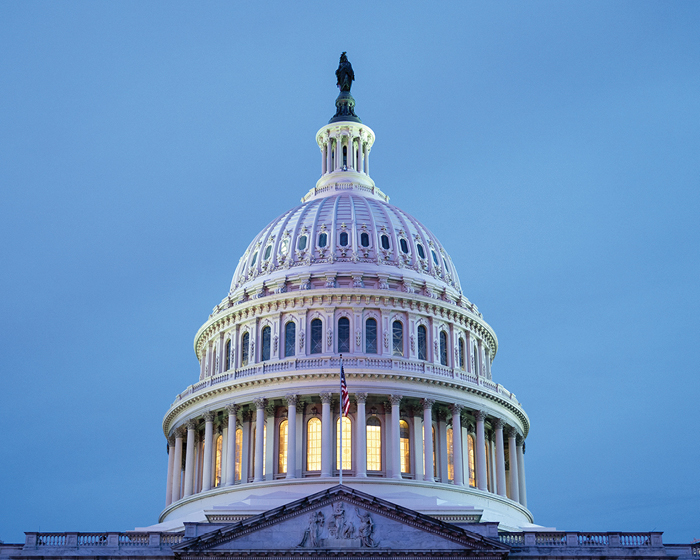Key Takeaways
- The government shutdown, now the longest in history, is set to continue.
- Democrats continue to demand that an extension of Obamacare credits be included as part of a final deal.
- A bipartisan group of representatives support extending the credits with a new income limit.
- OpenAI pushes for tax credits.
- Treasury ends Direct File program, citing low usage.
Despite some glimmers of hope, there’s still no clear end to the current government shutdown—which, as of this week, is the longest in American history.
While party leaders expressed some optimism that a deal was in the offing, the good night for Democrats in Tuesday’s elections has bolstered those in the party who don't want to back down yet. President Trump, meanwhile, has been pushing Republicans to disregard the filibuster rules and re-open the government themselves.
Whatever the solution ends up being, the enhanced premium tax credits for the Affordable Care Act exchanges are likely to be central to it. Extending the expiration of the enhancement, set for the end of the year, is the key provision Democrats have said must be part of any legislation to re-open the government. The credits were created by the ACA in 2010, and Congress in 2021 expanded who was eligible for the credits, and how much of healthcare premiums they would cover. The 2022 Inflation Reduction Act, passed with only Democratic support, extended that expiration through 2025.
While some Democrats may support a guarantee that an extension will be voted on as part of an agreement, it’s unclear what this promise would look like.
A bipartisan group of lawmakers in the House of Representatives may have given some clues as to what would be included in an ACA proposal. Rep. Don Bacon (R-NE), Rep. Jeff Hurd (R-CO), Rep. Tom Suozzi (D-NY) and Rep. Josh Gottheimer (D-NJ) issued a joint statement on Monday endorsing “principles” for a temporary extension.
According to the statement, the representatives would support a two-year extension, if the ACA credits included a new phase-out for those earning between $200,000 to $400,000. Next year, absent a change in law, the ACA credits can be claimed by those earning up to 400% of the federal poverty limit, which is about $60,000 per year for an individual or $85,000 for a household of two. With the enhancement, there is no upper income limit on who can claim the credits, although the amount of the premium is reduced for those with higher incomes.
The design of the “phaseout” for those with higher incomes could be a key issue were this to be translated to legislation. Before the enhancement, the limit fully disqualified those who earned 400% or more, which was criticized as being a harsh “cliff” for enrollees.
Aside from the income cap, the bipartisan framework also calls for “guardrails” to prevent “improper payments,” including new confirmations that recipients are alive and stronger criteria to remove an agent from the exchanges.
The language in the release could be the basis for at least an agreement on the subsidies, and perhaps a way to reopen the government. But consensus on the substance may not solve the sharp disagreements on the politics and process.
Recent Tax Pieces:
Three Ways Congress Could Change the Enhanced Premium Tax Credit – Katie Lobosco, Tax Notes ($):
Before the enhanced premium tax credit was created, people earning more than 400 percent of the federal poverty line didn’t qualify for a tax credit when they bought health insurance on the ACA exchanges. But since 2021, the boosted subsidy expanded eligibility for more middle-income earners and lowered premium costs for some lower-income earners.
While there is no hard cutoff, the enhanced tax credit phases out as incomes rise and eventually disappears, depending on income and family size.
OpenAI Asks US to Expand Chips Act Tax Credit to AI Data Centers – Maggie Eastland and Shirin Ghaffary, Bloomberg Tax ($):
The so-called Advanced Manufacturing Investment Credit named in the letter was initially part of the 2022 Chips Act. It was increased to 35% from 25% as part of the omnibus tax bill Congress passed this July.
Free Tax-Filing Experiment Is Ended by Trump Administration – Richard Rubin, The Wall Street Journal ($):
Court Filing Reveals Details of IRS Shutdown Layoffs – Kristen Parillo, Tax Notes ($):
In a declaration filed November 4 in American Federation of Government Employees v. U.S. Office of Management and Budget, a Treasury official detailed the number of reduction-in-force notices issued to employees at Treasury and its subdivisions after the shutdown began October 1.
Democrats Harness Election Wins in Obamacare-Shutdown Standoff – Erin Durkin and Maeve Sheehey, Bloomberg Tax ($):
For weeks, the two parties have been at an impasse over the enhanced premium tax credit extension. The subsidy was temporarily boosted during the Covid-19 pandemic so that lower-income people received more assistance, and more individuals making above 400% of the federal poverty level could access the tax credits.
Make a habit of sustained success.



